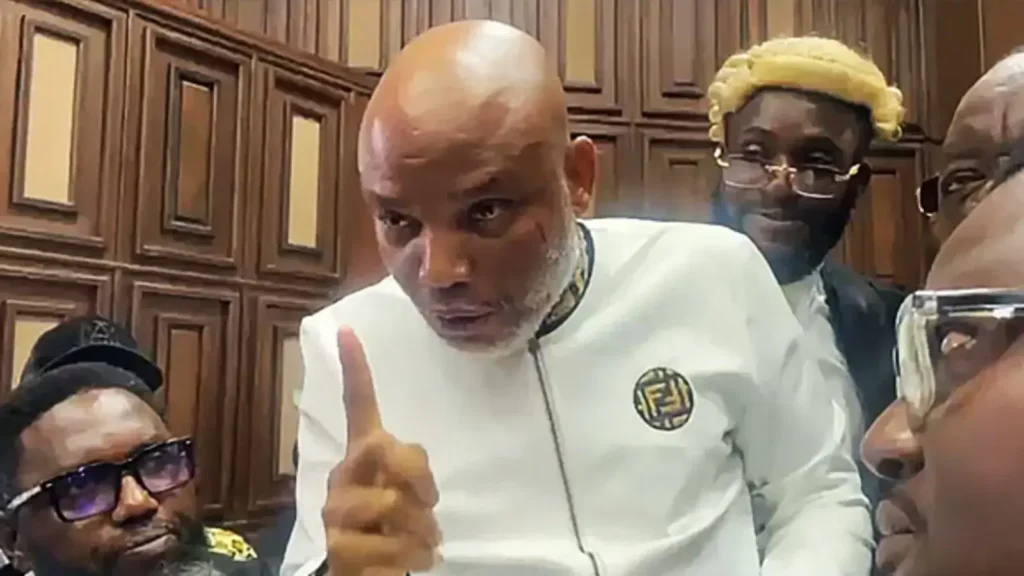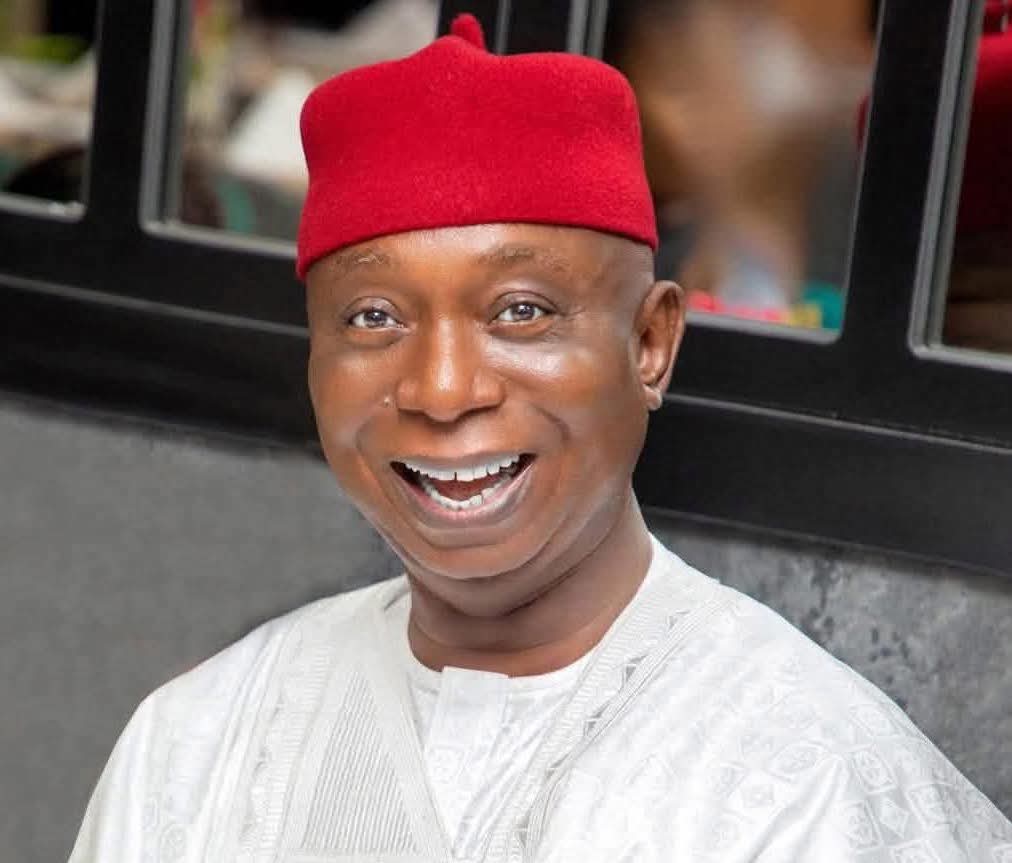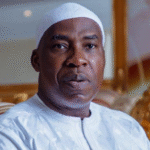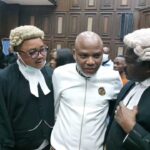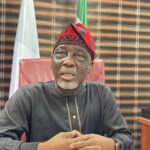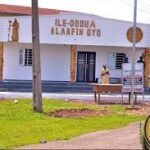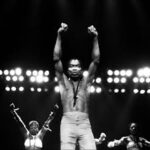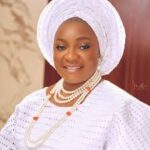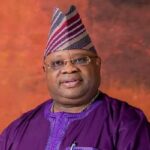Now Reading: Nnamdi Kanu waives defence in terrorism trial, judge cautions
-
01
Nnamdi Kanu waives defence in terrorism trial, judge cautions

Nnamdi Kanu waives defence in terrorism trial, judge cautions
Biafra agitator Nnamdi Kanu has waived his right to enter defence in his terrorism trial at the Federal High Court in Abuja.
Mr Kanu announced this decision at the resumed hearing in the case on Monday fixed for him to open his defence.
It is the first major legal decision Mr Kanu has taken in the trial since taking over his own defence after suddenly sacking his lawyers last Thursday.
The leader of the proscribed Indigenous People of Biafra (IPOB) told the judge, James Omotosho, that he had reviewed the case of the prosecution and found it was not worth defending.
Mr Kanu, who is being tried for his violence-inciting campaigns for the independence of Nigeria’s South-east and parts of neighbouring states as Biafra, said there was no valid charge against him in the first place, rendering his defence unnecessary.
The dual citizen of Nigeria and the United Kingdom said he was being subjected to unlawful trial.
The judge cautioned him about the implication of his decision and urged him to consult with experts.
One week of shifts
Mr Kanu’s decision waving away the court’s call to enter his defence, after the prosecution closed its case with five witnesses in June, is the latest in a string of surprises the IPOB leader has sprung up amid fast-paced developments regarding the case in the last one week.
On Monday, 20 October, a protest led by human rights activist Omoyele Sowore, called for Mr Kanu’s unconditional release from a four-year detention where he had been kept since June 2021.
On the following day, Tuesday, he filed a list of proposed defence witnesses including former and serving public officers he wanted the court to summon to appear to testify in his defence
He stated that he intended to call 23 witnesses, divided into two categories: those he described as “ordinary but material witnesses” and those he termed “vital and compellable”. He sought to have them summoned under Section 232 of the Evidence Act, 2011.
He also asked the court to grant him 90 days to conclude his defence, citing the number of witnesses he planned to call.
On Wednesday, with the trial judge’s permission, he met with his lawyers in the courtroom for hours, ahead of Thursday’s proceedings scheduled for his defence to start.
But at Thursday’s proceedings, Mr Kanu suddenly announced the disengagement of his legal team led by former Attorney-General of the Federation and Minister of Justice, Kanu Agabi, a Senior Advocate of Nigeria (SAN). He told the court he was ready to defend himself. He then sought an adjournment till Friday to prepare for the case.
At Friday’s hearing, Mr Kanu said he was not ready to begin his defence because his disengaged lawyers had yet to hand over his case file. The judge reluctantly adjourned the case till Monday with a warning that Mr Kanu should either open his defence or waive his right to present a defence.
The prosecution, which closed its case with five witnesses in June, accused him of making inflammatory social media remarks that allegedly led to killings and destruction of property in the South-east.
After the prosecution closed his case, Mr Kanu filed a no-case submission, which the court subsequently dismissed.
At another time, he said he was not medically fit to stand trial. But the claim was later debunked by a panel which the court ordered the Nigerian Medical Association to set up.
He also complained of lack of adequate access to his lawyers in the custody of the State Security Service (SSS), where he has been detained since June 2021. Addressing his complaint, the judge vacated the courtroom for him last Wednesday to meet with his lawyers for hours.
Judge cautions
Judge Omotosho had, on several occasions, advised the IPOB leader to open his defence.
When the case was called on Monday (today), Mr Kanu told the judge that he had reviewed the case file and realised that the charges lacked merit.
However, Mr Omotosho directed him to file a written address to that effect and serve the prosecution.
The judge also advised him to consult experts in criminal law on the implications of the decision he had taken.
The court adjourned the case till 4, 5 and 6 November for the adoption of final written addresses based on Mr Kanu’s position that the prosecution had not established any case against him.
From arrest, journey to and back from Supreme Court
Mr Kanu was first arrested in September 2015 over his agitation through radio broadcasts for the secession of the Igbo-dominated South-east from Nigeria as a sovereign Biafra nation.
The case, since kicking off in 2015, has passed through four judges of the Federal High Court in Abuja, the current one being the latest, and paraded successive defence teams.
The Biafra agitator was released on bail from the custody of the SSS in 2017, but subsequently fled the country after soldiers invaded his home in Afara-Ukwu, Abia State, in September that year.
This halted his trial until he was rearrested and brought back to Nigeria in June 2021.
Mr Kanu, a citizen of Nigeria and the United Kingdom, is standing trial on terrorism charges that accuse him of inciting violence that led to killings and destruction of property for years in the South-east states.
Source: Premium Times



